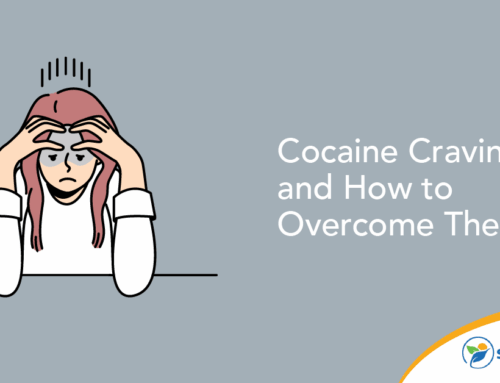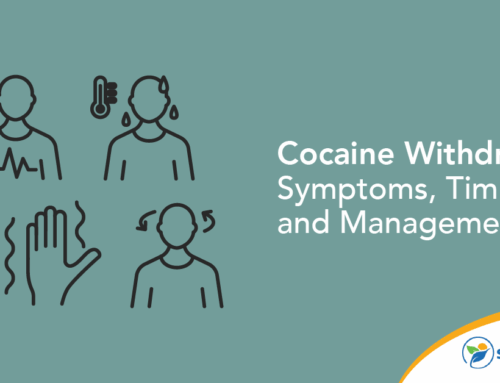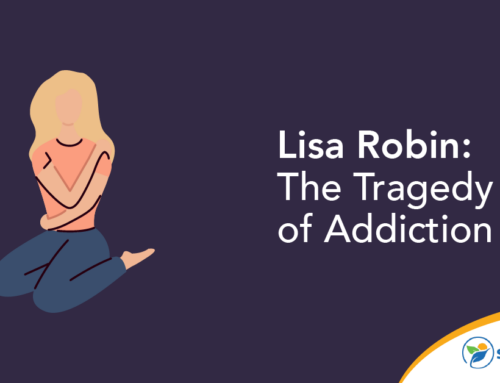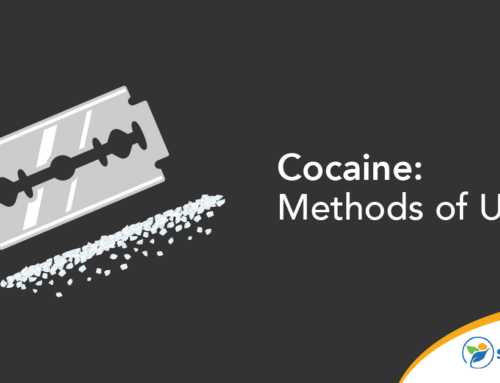Understanding what causes naltrexone side effects and being nauseous on naltrexone can help you decide if it is worthwhile to take this medication.
Naltrexone is an FDA approved medication that is used to treat AUD (Alcohol Use Disorder) and Opioid Use Disorder (OUD). According to SAMSA (Substance Abuse and Mental Health Services Assocation), naltrexone is a Medication-Assisted Treatment (MAT) that can be prescribed by a licensed healthcare professional to individuals who are 18+ without other health conditions.
People who are taking naltrexone for AUD or OUD as directed tend to experience a reduction in cravings, helping them abstain from drug or alcohol abuse. Alcohol use disorders affect anywhere from 7 to 8% of Americans. While it can make you feel more in control of these decisions, there are some other feelings to consider that can occur as side effects from taking naltrexone.
Naltrexone Sick: Why Does it Cause Nausea?
Naltrexone can be hugely beneficial to you if prescribed by a doctor to help manage AUD or OUD. However, when taking this drug, it’s important to realize that there could be side effects associated with it. Naltrexone weight loss is possible, especially since this medication is sometimes prescribed to patients looking to manage obesity.
Side effects of naltrexone can include:
- Anxiety
- Nausea or vomiting
- Headache
- Dizziness
- Muscle pain
- Lack of appetite
- Insomnia
Long-term side effects of naltrexone can include liver damage, in some cases. Talk to your doctor immediately if you notice stomach pain, yellow eyes, extreme fatigue or dark urine while taking naltrexone.
Nausea from naltrexone is most common if you consume the medication while alcohol is still in your system. To reduce the likelihood that a patient will experience nausea, vomiting, headaches and other unpleasant side effects when starting naltrexone, doctors typically recommend waiting until there is no alcohol in your system to take the medication.
Are the Benefits Worth Being Nauseous on Naltrexone?
Naltrexone works to reduce alcohol and drug cravings by blocking the opioid receptors in the brain to eliminate the feelings of pleasure and euphoria associated with their use; in the case of opioids, it blocks out the high. By removing the enjoyment from these experiences, patients can typically manage their addiction better.
The benefits of being prescribed naltrexone rather than other MMT options like methadone is that naltrexone itself is not an opioid. Therefore, prolonged use of the drug as prescribed cannot lead to opioid dependance. For patients with alcohol addiction, this is especially important and may be worth dealing with minor side effects, such as nausea.
Long-term effects of alcohol and opioid abuse must be part of the conversation when considering whether the short-term side effects of naltrexone are worth enduring as part of the recovery process. Long-term alcohol abuse can cause:
- Some types of cancer
- Cardiovascular disease and stroke
- Liver disease
- AUD (Alcohol Use Disorder)
- Mental health problems and more
Reducing the risk of these conditions can, in many instances, outweigh the discomfort of naltrexone’s short term side effects. If you are unsure whether naltrexone is right for you, talk to your doctor about your lifestyle and the associated risks of your condition versus treatment with a medication like naltrexone. This medication is often given in combination with therapy like CBT (cognitive behavioral therapy).
Patients who have an opioid addiction should talk to their doctor about the risks of naltrexone before starting treatment. Anyone at a risk of overdosing by trying to still get high while on naltrexone (which blocks the sensation) may not be well suited to this medication option.
How Long Do Naltrexone Side Effects Last?
The side effects of naltrexone tend the improve over time as the body adjusts to the medication and dosage. Mild side effects like nausea, vomiting and constipation typically go away or improve significantly within a few days to a few weeks of starting the treatment. Naltrexone is sold in the United States under the brand name ReVia and, at this time, does not have any side effects associated specifically with its long-term use.
However, consuming alcohol or opioids while taking the medication can bring on further occurrences of nausea and other side effects. These are likely to subside once the substances leaves the system.
Ways to Reduce or Eliminate Nausea while on Naltrexone
To lessen the chance of being nauseous on naltrexone, avoid consuming alcohol before or while taking the medication.
To reduce reactions or other side effects of naltrexone:
- Take only the prescribed dosage
- Follow all directions from the prescribing doctor about what to do if you miss a dose
- Disclose all other medications you take to the doctor to avoid drug interactions
- Take the medication as directed in its prepared form
- Do not take alcohol, opioids and other CNS depressants
- Stay in touch with your doctor and therapist throughout treatment
If reactions to naltrexone occur, inform your doctor immediately so they can create a plan for alternative treatment. There are many medications and non-medicinal treatment options available to help you manage drug and alcohol addiction. Each individual is unique, and what works for one person may not be the best option for someone else.
Therefore, you and your doctor can work together to develop a treatment method you are happy with and feel comfortable using. Medication, therapy or a combination of the two are often successful. In a 2009 report on multiple studies, patients who received medical treatment with naltrexone but no therapy showed an improvement in their alcohol use by around 5%. However, when the naltrexone treatment was combined with therapy, participants drinking below a safe a limit with no significant consequences increased to 15%.
Talk to a Professional About Naltrexone Sickness and Side Effects
If you are seeking treatment for alcohol or drug abuse and addiction, the team at Sunlight Recovery can help. Our professionals work with you to develop a treatment plan that meets your needs whether that’s medication, therapy or a combination of treatment methods. Contact us today to discuss your options and start the journey to recovery in South Florida.







